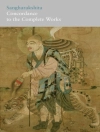Thérèse Raquin (1867) is a novel by French author Émile Zola. Initially serialized in L’Artiste, a popular French literary magazine, Thérèse Raquin, Zola’s third novel, earned the author widespread fame and critical condemnation for its scandalous content and unsparing vision of human sexuality and violence. Thérèse Raquin effectively launched Zola’s career as a leading practitioner of literary naturalism, and has since been adapted countless times for theater, television, and film. Thérèse Raquin, the daughter of an Algerian mother and French father, is raised by her aunt, Madame Raquin, whose overbearing nature has turned her son Camille into a reclusive hypochondriac. Despite growing up like a sibling to Camille, Thérèse is forced by her aunt to marry him at the age of 21, thereby relinquishing her autonomy as a young, ambitious woman. Desperate for change, she suggests they move to Paris together, where the two women run a shop while Camille searches for his first job. In the French capital, Camille runs into an old friend, Laurent, who eventually falls in love with the unsuspecting man’s unhappy wife. Overwhelmed with desire, desperate for affection, Thérèse not only begins in an affair with Laurent, but considers the prospect of murdering her husband in order to free herself. During a boat trip, the two lovers seize their chance, but the consequences of their decision relentlessly follow them, leaving them haunted in dreams and in life by the man they thought they had lost. This edition of Émile Zola’s Thérèse Raquin is a classic work of French literature reimagined for modern readers.
Since our inception in 2020, Mint Editions has kept sustainability and innovation at the forefront of our mission. Each and every Mint Edition title gets a fresh, professionally typeset manuscript and a dazzling new cover, all while maintaining the integrity of the original book.
With thousands of titles in our collection, we aim to spotlight diverse public domain works to help them find modern audiences. Mint Editions celebrates a breadth of literary works, curated from both canonical and overlooked classics from writers around the globe.
About the author
Émile Zola (1840-1902) was a French novelist, journalist, and playwright. Born in Paris to a French mother and Italian father, Zola was raised in Aix-en-Provence. At 18, Zola moved back to Paris, where he befriended Paul Cézanne and began his writing career. During this early period, Zola worked as a clerk for a publisher while writing literary and art reviews as well as political journalism for local newspapers. Following the success of his novel Thérèse Raquin (1867), Zola began a series of twenty novels known as Les Rougon-Macquart, a sprawling collection following the fates of a single family living under the Second Empire of Napoleon III. Zola’s work earned him a reputation as a leading figure in literary naturalism, a style noted for its rejection of Romanticism in favor of detachment, rationalism, and social commentary. Following the infamous Dreyfus affair of 1894, in which a French-Jewish artillery officer was falsely convicted of spying for the German Embassy, Zola wrote a scathing open letter to French President Félix Faure accusing the government and military of antisemitism and obstruction of justice. Having sacrificed his reputation as a writer and intellectual, Zola helped reverse public opinion on the affair, placing pressure on the government that led to Dreyfus’ full exoneration in 1906. Nominated for the Nobel Prize in Literature in 1901 and 1902, Zola is considered one of the most influential and talented writers in French history.






![Cover of Jennifer Richards: Elizabeth Singer [Rowe] Cover of Jennifer Richards: Elizabeth Singer [Rowe]](https://static.worldofdigitals.com/thumb_webp/931/9781351940931.webp)





